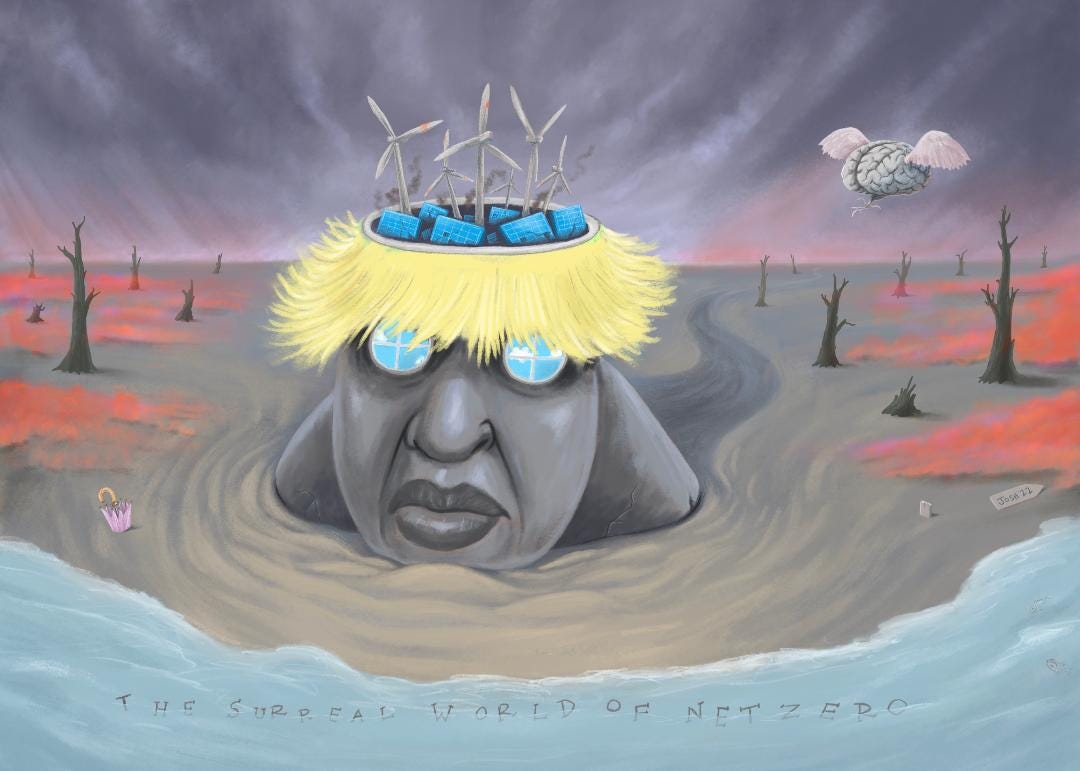ESG By Any Other Name Would Smell Just As Bad
https://cartoonsbyjosh.co.uk/
The New York Post led an article last week with the headline “Texas yanks $8.5B from Larry Fink’s BlackRockBLK -1.5% in ‘massive blow against the scam of ESG’”. On the same day, Executive Director of Consumers Research Will Hild tweeted that BlackRock "was simultaneously trying to destroy the domestic oil and gas industry while managing funds that depended on royalties derived from that very same industry. A more flagrant violation of fiduciary duty is difficult to imagine.”
Mr. Fink is CEO of BlackRock, the world’s largest asset manager with over $10 trillion under management. He is the man most responsible for making “environmental, social and governance” criteria the ruling ideology astride the investment world. A “flagrant violation of fiduciary duty” is a serious charge on any financial advisor. That is why Mr. Fink said last June that he didn’t want to use the politicized term “ESG” anymore. A recent Bloomberg article notes that the term is fast becoming a “loathed monicker.”
For Larry Fink, who forecast in late 2018 at a New York TimesNYT +0.7% conference that “the demand for ESG is going to transform all investing…”, it is not ESG these days, it is “transition investing”. Avoiding the loathed monicker, BlackRock is all about investing in “infrastructure” that “will help speed the transition from fossil fuels.”
ESG investments have grown rapidly over the past decade, and the amount of professionally managed portfolios that have integrated key elements of ESG or “sustainable” criteria exceeded $17.5 trillion globally in 2020 by some estimates. According to leading accounting firm PWCPWC -0.9%, global assets under management in 2021 totaled $127.5 trillion, of which $18.4 trillion or just under 15% were described as ESG funds. By 2026, the upbeat assessment by PWC expects ESG funds to constitute 21.5% of global assets under management. In 2021, Bloomberg came out with even more bullish forecasts, suggesting that global ESG assets are on track to exceed $53 trillion by 2025, representing more than a third of the $140.5 trillion in projected total assets under management. Commitments from large institutional investors and regulatory pressures were expected to drive this strong growth in “sustainable” investing.
The past two years have not been kind to the ESG cause. This has been a result of a combination of factors including the boomeranging impact of the Western sanctions on Russia on energy security, the collapse of “clean” energy stocks, and the widespread backlash against “woke capitalism” and climate change regulations in Europe and the U.S. In 2022, investors pulled more money out of “sustainable” or ESG funds than they put in for the first time in more than a decade.
Last year was the worst on record for ESG investing, leading Jon Sindreu of the Wall Street Journal to speculate that “it might never recover”. Mr. Sindreu also found that mentions of the hated ESG monicker have dropped by almost 60% in company analyst calls from their peak in 2022, mirroring a similarly steep fall in online searches for ESG investing according to Google Trends.
for full story
https://www.forbes.com/sites/tilakdoshi/2024/03/27/esg-by-any-other-name-would-smell-just-as-bad/




